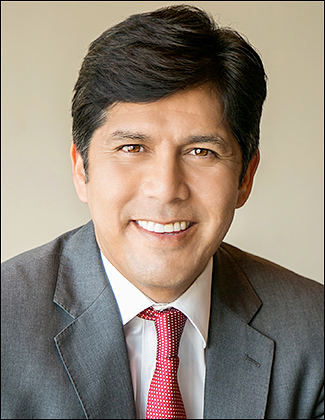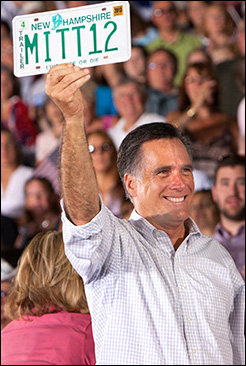
Rep. Mary Bono Mack
Now that we’ve passed Labor Day, congressional polls are going to be released at a fast and furious pace. Yesterday several surveys came into the public domain, each revealing close races for the tested subjects. Some of the new data appears surprising, but considering the redistricting or political situation surrounding the incumbent such results should have been expected.
Around the horn, close races are confirmed for Reps. Mary Bono Mack (R-CA-36), Mike Coffman (R-CO-6), Bill Johnson (R-OH-6), David Rivera (R-FL-26) and the open WA-1 campaign between Republican John Koster and Democrat Suzan DelBene.
Polling for the liberal advocacy group Democracy for America, Public Policy Polling (Sept. 12-13; 1,281 likely CA-36 voters via automated interviews) gives California Rep. Bono Mack only a 47-44 percent lead over physician Raul Ruiz (D). The Riverside County district favors Republicans in registration by a 40.3 to 38.6 percent margin and the PPP sampling universe showed a 41-40 percent Republican to Democrat ratio. Therefore, the poll accurately reflects the desert district’s political division. This is the second poll that has projected the campaign to be within the margin of error. Such is not a surprise because this district can be competitive and Dr. Ruiz is proving to be a formidable opponent.
In Colorado, when the court re-drew the 2011 congressional map, the incumbent receiving the most adverse district was sophomore Rep. Mike Coffman. His 6th District went from 53-46 percent McCain to a 54-45 percent Obama, a net swing of 16 points toward the Democrats. So, it’s no surprise that he would be in a tough 2012 campaign. The Democratic Congressional Campaign Committee released another of their methodologically questionable interactive voice response polls, this one of only 350 people. The results show Coffman leading 42-39 percent, which on this type of survey, and being unaware of the types of questions asked, may not be a bad result for the Republican incumbent. The new confines of the district will yield a close race, but it is reasonable to conclude that the DCCC three-point Republican advantage conclusion most likely understates Rep. Coffman’s true support.
The 6th District in Ohio is a Democratic-leaning district at the very least. Freshman Rep. Bill Johnson’s upset of two-term Rep. Charlie Wilson (D) was one of the biggest surprises of the 2010 cycle. Therefore, it was expected that the re-match would be close. According to an Anzalone-Liszt survey for the Wilson campaign (Sept. 9-12; 500 likely OH-6 voters), the results confirm such a prediction. The Democratic internal data projects the race to be a 46-46 percent tie. Both candidates are accusing the other of voting to cut Medicare. The 6th, Ohio’s largest coal-producing district, could well vote based upon energy policy. The Cap & Trade issue was a major reason for Johnson’s 2010 win, even though Wilson had opposed the bill when he was in the House. This race appears to be a pure toss-up.
In Florida, Public Policy Polling, again for Democracy for America (dates and sample size not released) fielded a survey that was basically in the push-poll category as it asked several questions regarding the FBI investigating freshman Rep. David Rivera (R-FL-26). The pre-push result showed two-time former congressional nominee Joe Garcia (D) leading the first-term representative 46-39 percent. After the push questions were asked and recorded, the secondary ballot test gave Garcia a 49-36 percent lead. There is no doubt that Rivera has political problems, and since the new 26th CD is politically marginal the six point Democratic lead is certainly within the realm of possibility.
Finally, in Washington state, a Survey USA poll (Sept. 13-15; 593 likely WA-1 voters) gives Republican John Koster a 46-42 percent lead over Democrat Suzan DelBene. Both individuals are former congressional nominees. The new 1st is much different from the current CD-1 that Democratic gubernatorial nominee Jay Inslee formerly represented. Fifty-two percent of the territory is new to the 1st District, but it’s an area largely comprised of places Koster represented during his tenure in the legislature and on the Snohomish County Commission. While 56 percent of the CD-1 voters supported President Obama in 2008, such a number represents a swing of 12 points toward the Republicans from WA-1’s former configuration. The S-USA poll shows Koster trailing DelBene by just one point among female voters, which is likely to expand in DelBene’s favor as the campaign continues toward Election Day. This race is expected to be close, but in a presidential year, the Democrats should command at least a slight edge.







